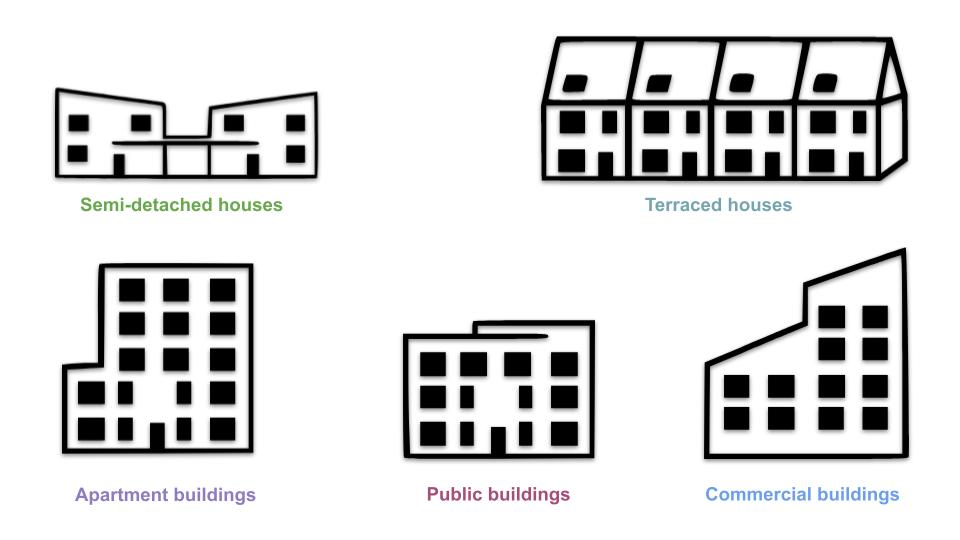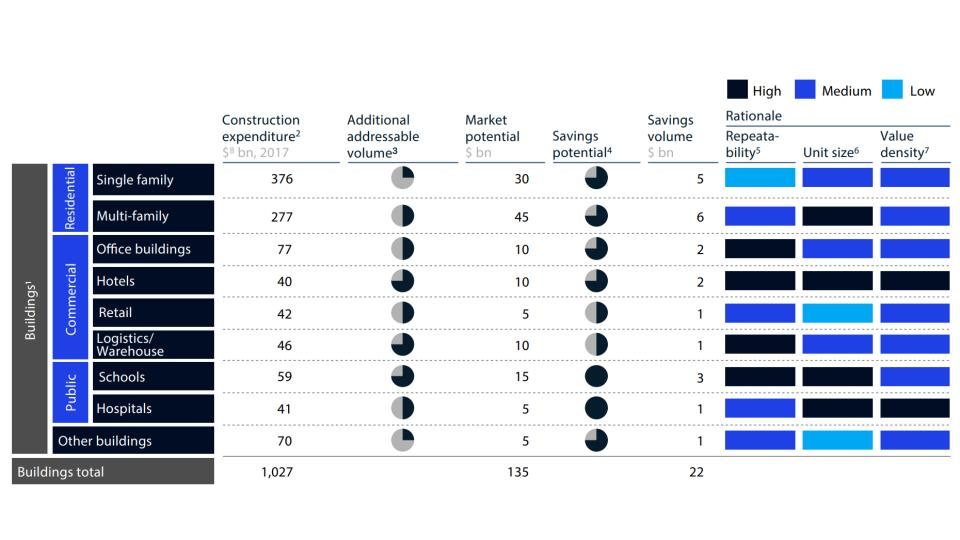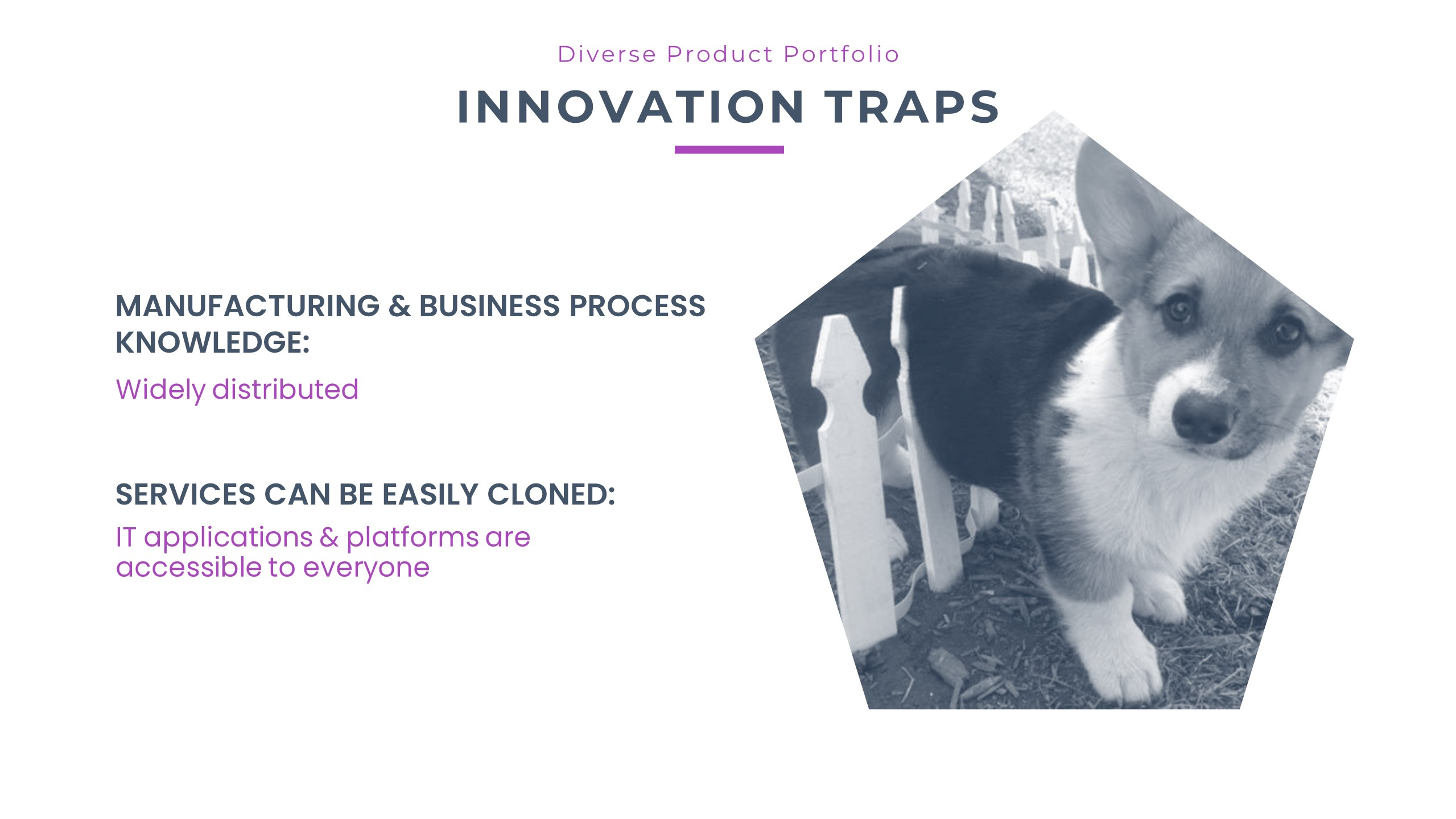Product Portfolio of Modular Buildings
A product portfolio for a modular house construction company refers to the range of products or services that the company offers to its customers. It includes all of the different types of modular and element houses, as well as any associated services such as design, customization, and installation.

Image: Modular Buildings Product Portfolio.
The product portfolio for a modular house construction company may include a variety of modular and element house options, such as modular homes, prefab homes, tiny homes, and modular apartments. These products may be targeted at different customer segments, such as families, retirees, and commercial clients.
In addition to the physical products, the product portfolio for a modular house construction company may also include any additional services that the company offers to its customers, such as design services, customization options, and installation or assembly services. These services may be used to differentiate the company’s offerings from those of competitors and to provide additional value to customers.

Sources: Euroconstruct; McGraw-Hill, McKinsey report
A well-planned product portfolio is an important part of a modular house construction company’s overall business strategy, as it helps the company to meet the needs of different customer segments, differentiate itself from competitors, and generate revenue through a focus products and services.
What is Product Portfolio Strategy?
A product portfolio strategy for a modular house construction company refers to the overall plan for managing the range of products and services that the company offers to its customers. The goal of a product portfolio strategy is to ensure that the company’s offerings meet the needs and preferences of different customer segments, while also generating revenue and staying competitive in the market.
A product portfolio strategy for a modular house construction company may involve several key steps, such as:
- Identifying the target customer segments: This involves researching and understanding the needs and preferences of different customer segments, such as families, retirees, and commercial clients, and developing products and services that meet those needs.
- Developing the product portfolio: This involves creating a range of products and services that are tailored to the needs of different customer segments. This may include modular homes, prefab homes, tiny homes, and other types of modular and element houses, as well as associated services such as design and customization options.
- Analyzing the market: This involves researching the market to understand trends, competition, and other factors that may impact the company’s product portfolio strategy. This information can be used to refine the company’s offerings and ensure that they remain competitive in the market.
- Launching and managing the product portfolio: This involves developing pricing, promotion, and distribution strategies for the company’s products and services, as well as ongoing evaluation and adaptation of the product portfolio based on market trends and customer feedback.

Source: Tcgen. BVG, Matrix Ansoff Matrix, Innovation Investment Portfolio.
Overall, a product portfolio strategy is an important part of a modular house construction company’s overall business strategy, as it helps the company to meet the needs of different customer segments, differentiate itself from competitors, and generate revenue through a diverse range of products and services.
The Trap: Too Many Products in Your Business
The number of different products a small and medium-sized modular builder should have in its product portfolio depends on several factors, including the target customer segment, the level of competition in the market, and the resources and capabilities of the company.

Image: Too Many Products in Your Product Portfolio is the Profit Trap.
A small and medium-sized modular builder should focus on a smaller number of products that are tailored to the most profitable customer segment with little to no competition. By offering a more focused product portfolio, the company can maximize its profits and increase customer loyalty through specialized, unique and personalized offerings.
However, most of the modular builders offer a broader range of products to appeal to a wider customer base. Offering a broader range of products to appeal to a wider customer base and diversify revenue streams can be a trap for a modular builder because it may lead to lower profitability and reduced competitive advantage. Here are some reasons why:
- Higher production costs: Offering a broader range of products often requires higher production costs, which can eat into profitability. This is because the company will need to invest in more materials, equipment, and labor to produce a wider range of products.
- Difficulties in managing quality: Managing the quality of a broader range of products can be challenging. This is because each product may have different requirements and specifications, making it difficult to ensure consistent quality across the product portfolio.
- Reduced differentiation: Offering a broader range of products can make it difficult to differentiate the company’s offerings from those of competitors. This is because a broader product portfolio can make it harder for customers to understand the company’s unique value proposition.
- Increased competition: Offering a broader range of products can also increase competition in the market. This is because the company will be competing with a wider range of companies that offer similar products.
- Complexity in managing inventory: A broader range of products can also lead to inventory management issues. This is because the company will need to manage inventory levels for a larger number of products, which can be more complex and costly.
In summary, while offering a broader range of products can help to diversify revenue streams, it can also lead to lower profitability and reduced competitive advantage. Modular builders should carefully evaluate the costs and benefits of offering a broader range of products before making a decision.
EpiProdux.com is a product management software designed for construction companies to help manage their product portfolio effectively. The software provides a range of tools and features that enable companies to identify their target customer segments, develop their product portfolio, analyze the market, and launch and manage their products effectively. On EpiProdux your products are given a rat-badge if it has low ambition in terms of revenue and profit. Find out quickly if your business consists of rat-products.

Image: Your product ambition is calculated on EpiProdux.com
Frequently asked questions:
What is a product portfolio strategy?
- Portfolio Management Strategies provides a means for constantly updating product investment plans in order to meet changing markets and market conditions. This increases your ROI.
What is a product portfolio in the context of a modular builder business?
- A product portfolio refers to the range of products and services that a modular builder offers to its customers. This can include different types of modular and element houses, as well as any associated services such as design, customization, and installation.
Why is a product portfolio important for a modular builder business?
- A well-planned product portfolio is important for a modular builder business because it helps the company to meet the needs of different customer segments, differentiate itself from competitors, and generate revenue through a diverse range of products and services.
How should a modular builder decide on the optimal number of products to offer in its portfolio?
- The optimal number of products in a modular builder’s product portfolio will depend on factors such as the target customer segment, the level of competition in the market, and the resources and capabilities of the company. The company should carefully evaluate these factors before deciding on the optimal number of products to offer.
How can a modular builder ensure that its product portfolio remains competitive in the market?
- A modular builder can ensure that its product portfolio remains competitive in the market by conducting thorough market research, analyzing industry trends, and developing products and services that meet the needs of its target customer segment. The company should also regularly evaluate and adapt its product portfolio based on customer feedback and changing market conditions.
How can a modular builder differentiate its product offerings from those of competitors?
- A modular builder can differentiate its product offerings from those of competitors by developing unique value propositions for each product, offering specialized and personalized products and services, and emphasizing factors such as sustainability, quality, and innovation. The company should also strive to provide excellent customer service and build strong relationships with customers.


